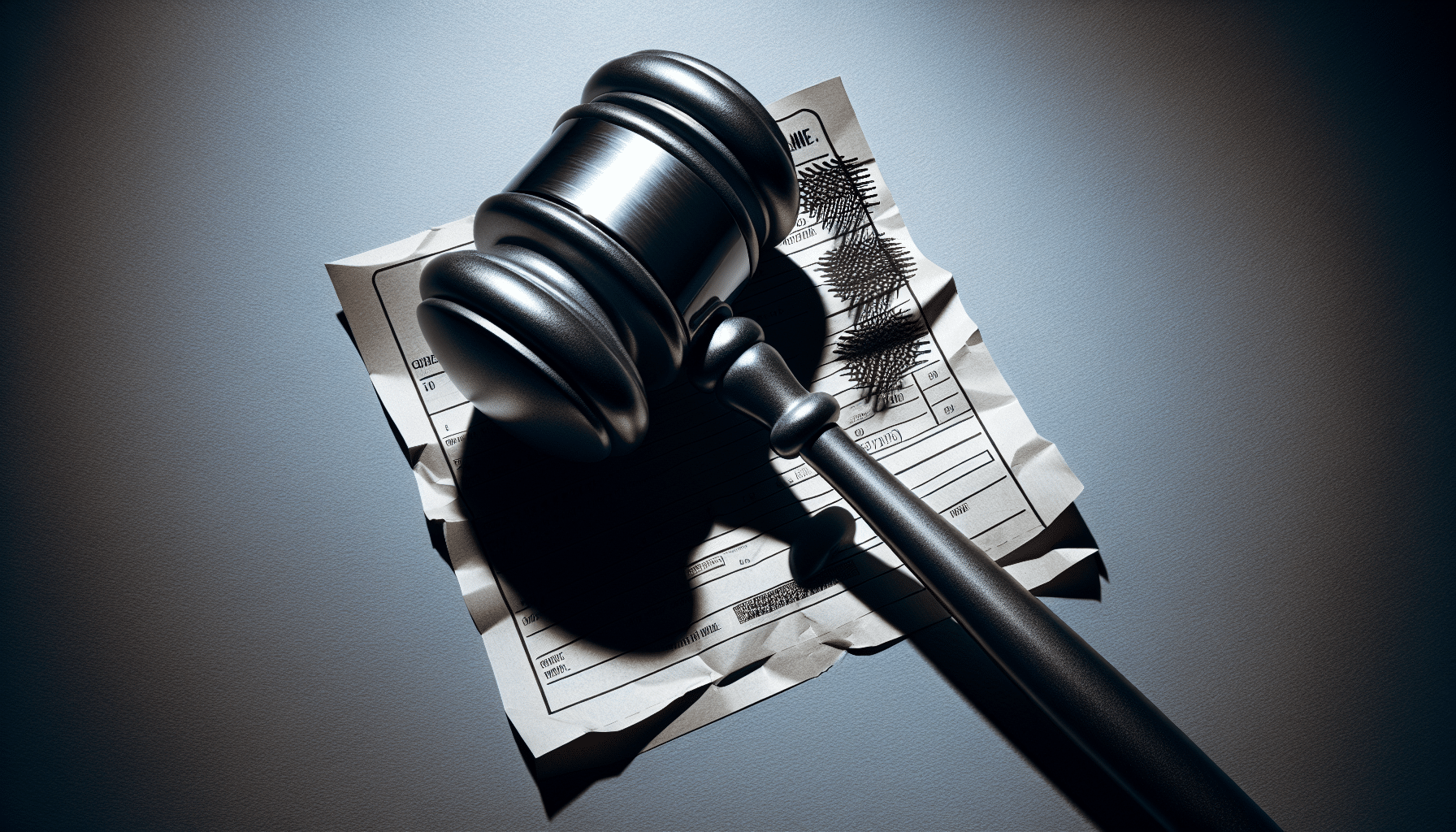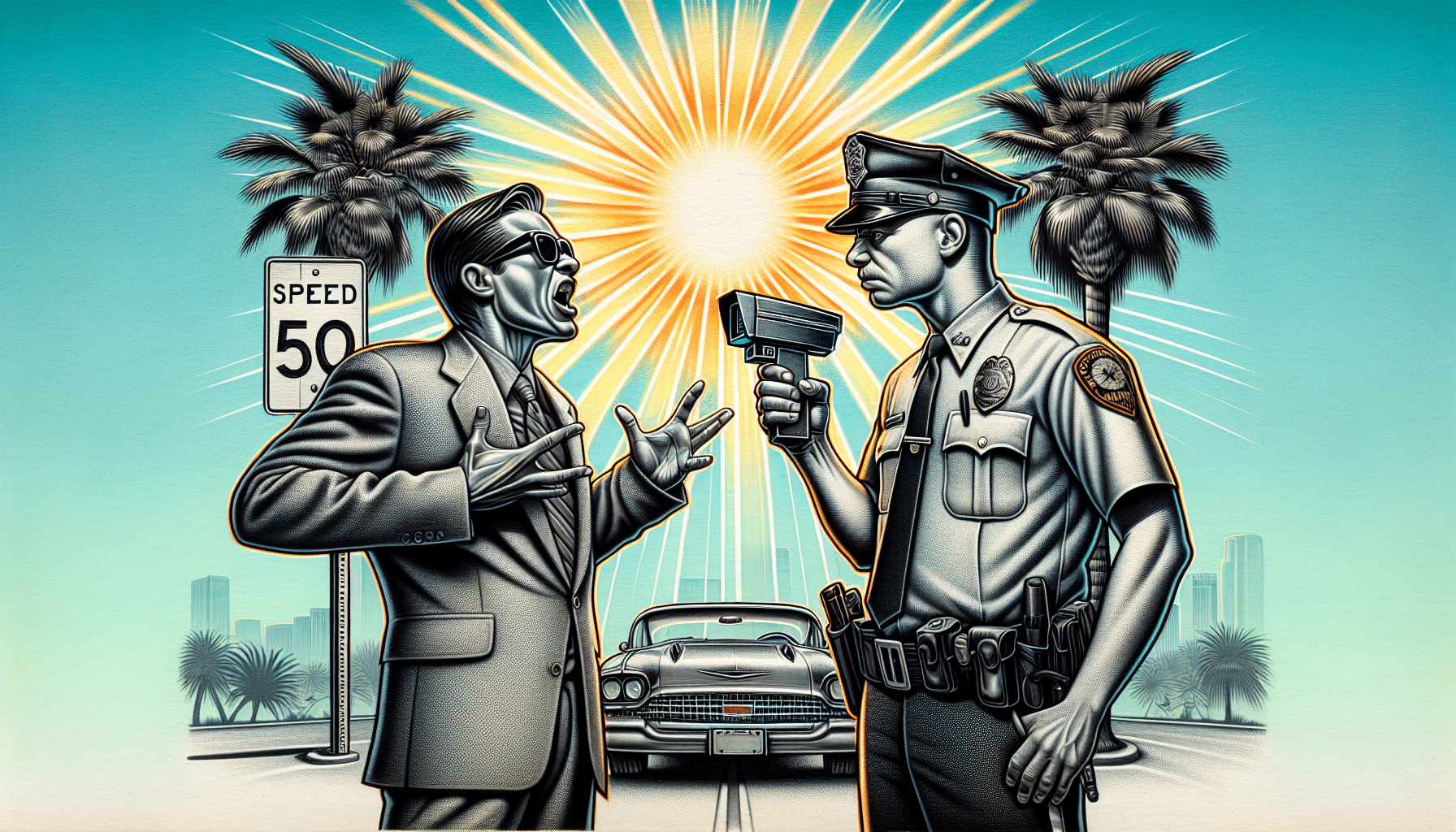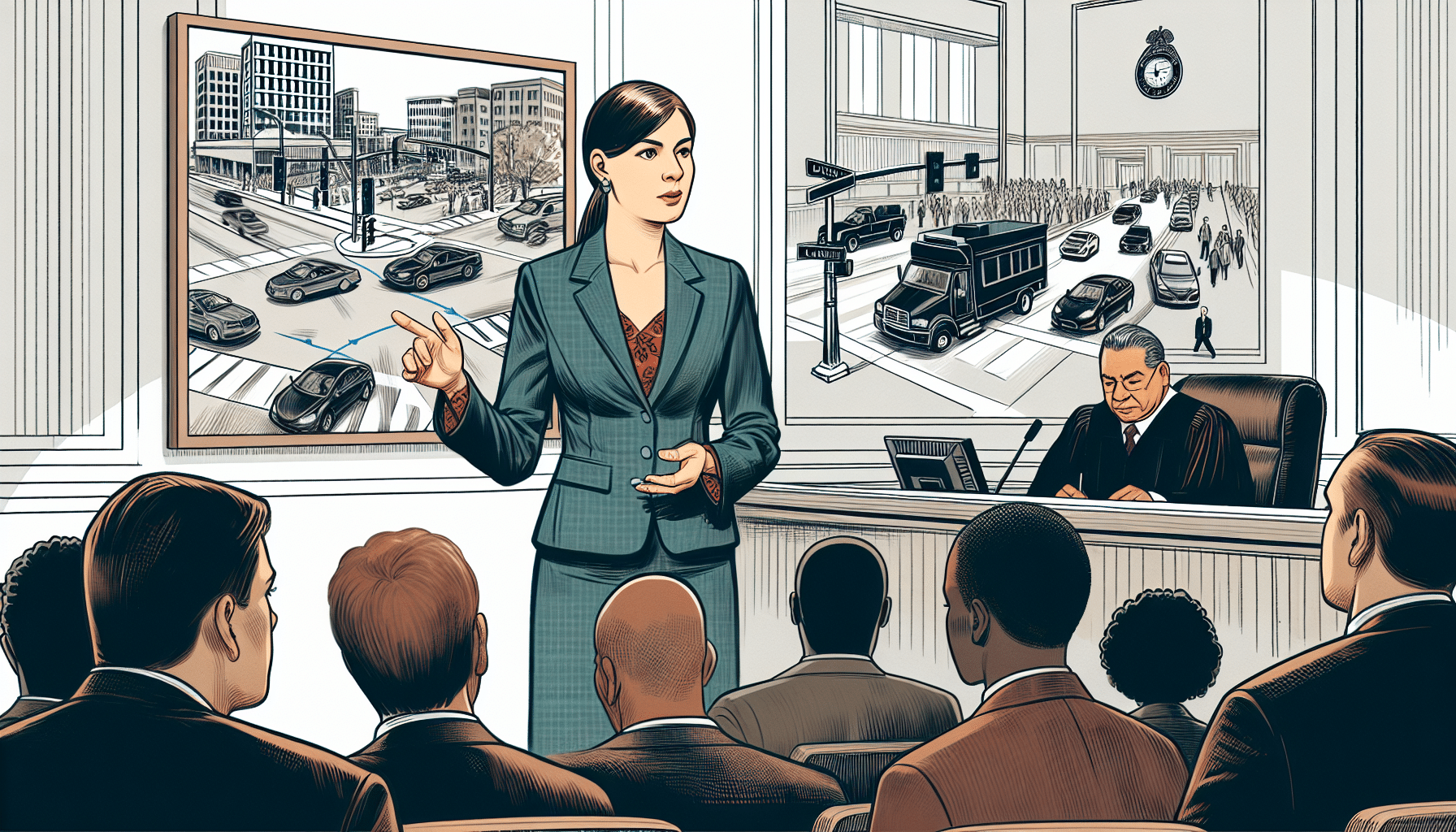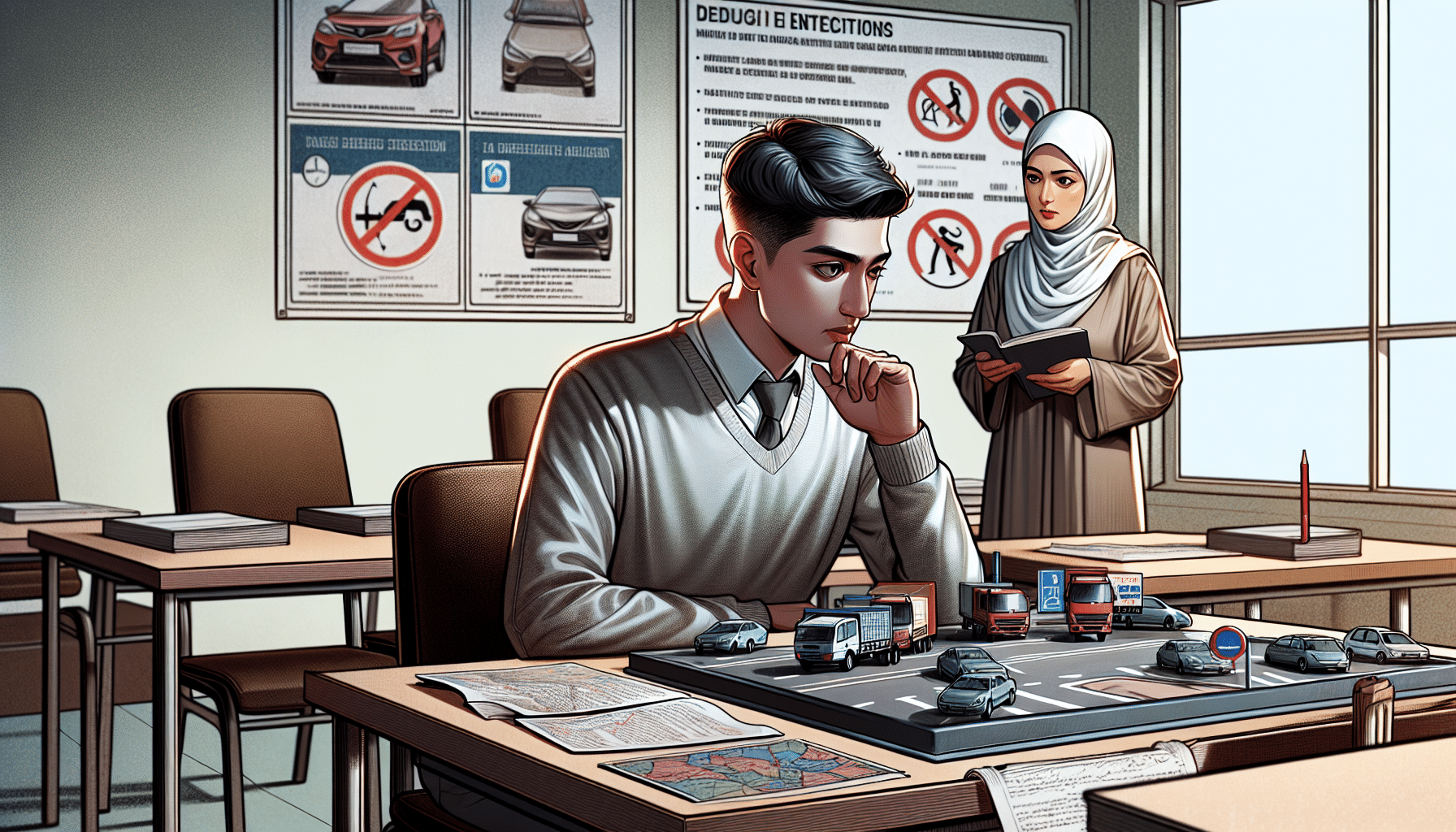Commercial drivers in California face serious consequences from traffic tickets, including high fines, insurance hikes, and even job risks. This article outlines how to dismiss a commerce traffic ticket in California by walking you through various strategies like understanding violation costs, utilizing a Trial by Written Declaration, and when to seek legal help. Read on to learn practical steps to protect your driving record and career.
Key Takeaways
- Understanding the substantial financial impact of commercial traffic tickets, including fines and increased insurance premiums, is crucial for maintaining financial stability and professional standing in California.
- The Trial by Written Declaration is an effective method for contesting traffic tickets without appearing in court, potentially leading to ticket dismissal and avoidance of increased insurance premiums.
- Commercial drivers are not eligible for traffic school to dismiss traffic tickets, making it essential to contest tickets through other legal avenues to prevent the accumulation of points and protect their careers.
Understanding Commercial Traffic Ticket Costs

Receiving a traffic ticket in California can be a costly affair, especially for commercial drivers. Beyond the base fines, which can be steep, additional county and state fees can exponentially increase the total cost. For instance, a simple red light ticket can easily exceed $450 due to added penalties and fees. Grasping these costs is vital since they can have a significant impact on your financial stability and professional standing.
In the subsections below, we will break down the fines and penalties associated with various traffic violations and discuss how these can impact your insurance premiums.
Traffic Ticket Fines and Penalties
Fines for traffic violations in California are notoriously high. For example, a speeding ticket comes with an average fine of $410, which includes additional fees on top of a $35 base fine. If you violate the carpool lane, you could end up facing a fine of over $490. Violating carpool lane rules can be costly, with fines exceeding $490. These fines are not just limited to the ticket itself but also include court operations assessment fees, conviction assessment fees, and emergency medical services fund penalty assessment fees, making the total payment almost six times the base fine. These penalties can accumulate rapidly, underscoring the need to comprehend the entire financial impact of a traffic ticket.
Moreover, specific violations carry their own hefty fines. A stop sign ticket in Commerce, CA, for instance, costs over $238. The high costs associated with these tickets are primarily due to the additional fees and penalties imposed by the county and state of California. Hence, staying informed about these potential costs and taking proactive measures to fight the ticket whenever possible is important.
Insurance Premium Increases
One of the most significant financial repercussions of receiving a traffic ticket is the increase in insurance premiums. After a speeding ticket, insurance premiums can rise by around $288 per year for the next three years if the speeding was 1-15 MPH over the limit. For more severe speeding violations, such as 16-29 MPH over the limit, the annual increase in premiums can be approximately $317. Over time, this can add up to a significant amount.
Furthermore, traffic camera violations are not exempt from these increases. A traffic camera ticket can lead to an annual insurance premium hike of around $272 for the next three years. Additionally, for commercial drivers, a single violation can result in a 19% rise in insurance premiums. Considering these considerable financial impacts, the importance of disputing a traffic ticket to evade increased insurance costs becomes apparent.
Trial by Written Declaration: A Powerful Tool

One of the most effective methods to contest a traffic ticket without appearing in court is through a Trial by Written Declaration. This process, allowed under California Vehicle Code Section 40902, enables you to submit a written statement and evidence to the court by mail, arguing why the ticket should be dismissed. This alternative is particularly beneficial since it eliminates the necessity to take a leave from work and participate in a court hearing.
The process involves:
- Submitting form TR-205, along with a written statement and any supporting evidence, to the court.
- The officer who issued the ticket will also submit a written statement.
- A judge will review both statements and make a decision in private, free from the distractions of a courtroom setting.
- If the judge rules in your favor, the ticket is dismissed, and you get a refund of the bail amount paid initially.
This approach not only conserves time but also presents a second opportunity to dispute the ticket if the initial decision is unsatisfactory.
How to File a Trial by Written Declaration
The process of filing a Trial by Written Declaration is quite straightforward. First, you must request this option by submitting form TR-205 to the court. Along with this form, you need to include a written statement detailing why you believe you are not guilty and any supporting evidence. Common forms of evidence include photographs, diagrams, and witness statements that can bolster your case.
Additionally, when submitting your documents, you must:
- Pay the full bail amount, which will be refunded if the ticket is dismissed
- Ensure that your submission arrives at the courthouse before the due date on your citation
- Once the court receives your written declaration, both your statement and the officer’s statement will be reviewed by a judge
- The judge will then mail you the decision
For those unable to take time off work to attend court, this process serves as a potent instrument.
Benefits of Trial by Written Declaration
A Trial by Written Declaration brings along multiple benefits. Firstly, it saves you time and the inconvenience of appearing in court, especially if you have a busy schedule. Additionally, officers are less likely to complete the paperwork required for this process, increasing the chances of your ticket being dismissed if the officer fails to respond. This method also provides two opportunities to contest the ticket, as you can request a new trial to appear in court in person if the written declaration does not result in a dismissal.
Moreover, a successful Trial by Written Declaration means no points on your driving record, a refund of the bail money, and no increase in insurance rates. This could result in substantial financial savings and assist in maintaining a clean driving record, which is vital for commercial drivers. Thus, the Trial by Written Declaration is a highly effective tool for contesting traffic tickets.
Specific Traffic Violations and How to Contest Them

Effectively contesting different traffic violations requires tailored strategies. Understanding the nuances of each type of violation can significantly increase your chances of success in traffic court. In the following subsections, we will delve into strategies for contesting speeding tickets, red light camera tickets, and stop sign violations. Each of these violations has unique aspects that can be leveraged to your advantage when contesting the ticket.
Speeding Tickets
When contesting a speeding ticket, there are several effective strategies you can use:
- Argue that your speed was safe given the traffic and road conditions. For instance, if you were driving slightly above the posted speed limit but within a reasonable speed for the conditions, this can be a valid defense.
- Challenge the calibration and accuracy of the speed measurement devices used by the officer, such as radar or laser equipment.
- Request evidence from the prosecution to prove that the speed measurement device was properly calibrated and maintained.
- Present any witnesses or evidence that supports your claim of safe driving conditions or inaccurate speed measurement.
By using these strategies, you can increase your chances of successfully contesting a speeding ticket.
Another approach is to gather evidence that supports your argument. This can include:
- Photographs of the road conditions
- Photographs of traffic flow
- Any other factors that might have influenced your driving speed
- Witness statements from passengers or other drivers
By presenting a well-documented case, you can raise reasonable doubt about the validity of the speeding ticket, increasing your chances of having it dismissed.
Red Light Camera Tickets
Red light camera tickets, also known as red light tickets, present unique challenges but can be contested effectively with the right approach. One common defense is to argue that the photo taken by the camera is not clear enough to identify the driver, as the law requires a clear image for automatic enforcement systems. Additionally, if there was no photo enforcement warning sign at the intersection or if it was obstructed, this can be grounds for dismissal.
Another strategy to contest a red light camera ticket is to:
- Check the yellow light interval timing at the intersection. The timing must align with the speed limit, and any discrepancies can lead to the dismissal of the ticket.
- Take photographs of the scene, including the positioning of the signs and traffic signals. These photographs can provide compelling evidence to support your case.
- Meticulously document these details to effectively contest a red light camera ticket.
Stop Sign Violations
Challenging a stop sign violation often involves disputing the officer’s observation. One effective tactic is to create a diagram showing the position of your car relative to the officer’s location. This can highlight potential errors in the officer’s observation, such as obstructed views or incorrect angles. Additionally, photographs of the stop sign and surrounding area can support your argument that you did come to a complete stop.
Another defense is to argue that the stop sign was not clearly visible due to factors like overgrown vegetation or poor lighting. Presenting evidence of these conditions can strengthen your case. Witness statements from passengers or other drivers who saw you stop can also be invaluable. By providing a comprehensive and well-documented defense, you can increase your chances of successfully contesting a stop sign violation.
Effective Defense Strategies in Traffic Court

Effectively contesting a traffic ticket in court necessitates robust defense strategies. Comprehending the legal definition of the traffic offense is key, as it can assist you in pinpointing the prosecution’s case’s weaknesses. In the following subsections, we will explore specific strategies such as challenging the officer’s evidence, proving a mistake of fact, and using the necessity defense. Each of these strategies can be powerful tools in your defense arsenal.
Challenging the Officer’s Evidence
Challenging the officer’s evidence is a common and effective defense strategy. For instance, if you were cited for an unsafe lane change, you could argue that the lane change was safe given the weather and traffic conditions, and that the officer was driving in front during the lane change, making it difficult for them to accurately observe your actions. Diagrams showing vehicle positions and conditions can be crucial in supporting your argument.
Additionally, photographs of road conditions, such as obscured signs or poor visibility, can provide evidence that contradicts the officer’s observations. By presenting alternative evidence, such as witness statements or diagrams, you can cast doubt on the officer’s version of events, increasing your chances of a favorable ruling.
Proving Mistake of Fact
The mistake of fact defense involves situations where a driver fails to comply with a traffic regulation due to a misunderstanding or lack of knowledge about a fact. For example, if a stop sign was obscured by a branch after a storm, you could argue that you were unaware of the stop sign’s presence. Presenting photographs of the obscured stop sign can support this claim and demonstrate that the violation was unintentional.
This defense can be particularly effective in cases where the driver honestly believed they were following the law, even when confronted by a police officer.
Necessity Defense
The necessity defense involves admitting to illegal driving but presenting information that deems the unlawful driving justified. For instance, if you had to speed up to avoid an imminent collision or swerved to avoid hitting another vehicle or pedestrian, these actions can be justified under the necessity defense. Providing evidence of the emergency situation, such as witness statements or photographs, can strengthen your case.
Legal Assistance: When to Hire a Traffic Ticket Expert
Although many traffic tickets can be disputed without professional assistance, engaging a traffic ticket expert can be advantageous in certain situations. For instance, commercial drivers facing severe violations that could lead to CDL revocation should consider legal assistance. Additionally, if you have multiple tickets or face charges that could result in a license suspension, an attorney’s expertise can be invaluable.
In the following subsections, we will discuss how to find the right traffic ticket expert and conduct a cost vs. benefit analysis.
Finding the Right Traffic Ticket Expert
Finding the right traffic ticket expert requires careful consideration. Here are some steps to help you in your search:
- Avoid hiring the first lawyer you come across; instead, compare several options before making a decision.
- Seek referrals from friends or colleagues who have previously hired traffic lawyers.
- Check the attorney’s experience and specialization in handling traffic violations.
- Discuss the fee structure upfront to ensure you can afford their services.
By following these steps, you can find the right traffic ticket expert for your needs.
Ensure the lawyer communicates effectively and answers all your questions during the initial consultation. This can help gauge their commitment and expertise. Be wary of lawyers offering services at unusually low rates, as this could be a red flag indicating a lack of experience or dedication to your case. By taking these steps, you can find a qualified expert who can effectively represent you in traffic court.
Cost vs. Benefit Analysis
When contemplating hiring a traffic ticket attorney, weighing the costs against the potential benefits is crucial. Benefits of hiring an attorney include:
- their ability to present objective evidence
- find irregularities in the citation
- provide legal representation that may increase the likelihood of getting the ticket dismissed
- having an attorney can save you time and stress by potentially eliminating the need for you to attend court.
Evaluate the attorney’s fees against the potential financial relief from avoiding fines, penalties, and insurance premium increases. For instance, if hiring an attorney costs less than the combined expenses of fines and increased insurance rates, it may be a worthwhile investment. Conducting a thorough cost vs. benefit analysis can help you make an informed decision about whether to hire a traffic ticket expert.
Attending Traffic School to Mitigate Consequences

Enrolling in traffic school can effectively help lessen the impact of a traffic ticket. Completing an approved traffic school course can:
- Reduce points on your driving record, helping to avoid risks of license suspension
- Demonstrate improved driving skills
- Prevent insurance premium increases by keeping the violation confidential.
In the following subsections, we will discuss the eligibility criteria for traffic school and the benefits of completing it.
Eligibility for Traffic School
Eligibility for traffic school in California often depends on the specific traffic violation and court approval. Typically, you are eligible for traffic school only if you have a minor violation and no other tickets within the past 18 months. However, violations that carry two points, such as reckless driving or speeding over 25 mph above the limit, do not qualify for traffic school.
Did you know that if you attend traffic school, successfully completing the course can lead to ticket dismissal in some cases? By choosing to complete traffic school, you can potentially save yourself from having a ticket on your record.
Benefits of Completing Traffic School
The benefits of completing traffic school are significant for California drivers. Successful completion removes the recent violation from your visible record, preventing potential increases in insurance premiums. It also ensures that the conviction and points remain confidential, thus not impacting your insurance rates.
Before enrolling, it’s essential to verify with the court if the chosen traffic school course meets their requirements to ensure you receive these benefits.
What to Do If You Miss Your Court Date
Failing to appear for your court date can result in serious repercussions, including the issuance of an arrest warrant and extra fines. If you find yourself in this situation, it’s crucial to act quickly. Contact the court immediately to check the status of your case and explain your situation.
In the following subsections, we will provide detailed steps for rescheduling your court date and handling a warrant if one is issued.
Rescheduling Your Court Date
To reschedule a missed court date in California, you can do so online, by phone, or in person before the due date on your ticket. Contact the appropriate court location to request a new date and avoid additional penalties.
If you need to postpone your trial date, appearing before a judge before the scheduled trial date is necessary. Acting promptly can help mitigate the consequences of missing your initial court date.
Handling a Warrant for Missing Court
If a warrant is issued for missing your court date, contacting the court promptly can help mitigate the consequences. It’s important to note that warrants cannot be settled over the phone or online; an in-person court appearance is usually required.
Addressing the warrant as soon as possible can help resolve the issue and potentially reduce additional penalties.
Commercial Traffic Tickets are not Eligible for Traffic School
In California, commercial drivers are not qualified for traffic school to get their traffic tickets dismissed. This restriction means that points from traffic violations will remain on their driving record, impacting their professional status and possibly leading to job loss.
For commercial drivers, grasping this restriction is vital as it emphasizes the importance of disputing tickets through other channels to prevent the accumulation of points on their record.
Commercial Traffic Ticket Consequences
Commercial traffic tickets can have serious consequences. Accumulating points on a commercial drivers license can lead to job loss, as many employers have strict policies regarding driving records. Additionally, insurance premiums for the company can increase, making the driver a liability. These professional license points can significantly impact a commercial driver’s career, highlighting the importance of contesting every ticket to avoid these repercussions.
Moreover, the financial burden of increased insurance premiums and potential fines can be substantial. Commercial drivers must be proactive in addressing traffic violations to maintain their employment and financial stability. By understanding the consequences and taking steps to contest tickets, commercial drivers can better protect their careers.
Summary
In conclusion, contesting a commercial traffic ticket in California requires a strategic approach. Understanding the costs associated with traffic tickets, leveraging tools like the Trial by Written Declaration, and knowing when to hire a traffic ticket expert can significantly improve your chances of success. Additionally, being aware of the eligibility criteria for traffic school and the specific consequences for commercial drivers can help you make informed decisions. By taking control of your situation and using the strategies discussed in this guide, you can effectively minimize the impact of a traffic ticket on your professional driving career.
Frequently Asked Questions
What is a Trial by Written Declaration?
A Trial by Written Declaration allows you to contest traffic tickets without appearing in court by submitting a written statement and evidence to the courthouse by mail. This can save you time and effort in handling traffic violations.
How can a traffic ticket affect my insurance premiums?
Getting a traffic ticket can cause your insurance rates to go up for the next 3-5 years, and the extent of the increase depends on the type of violation.
Are commercial drivers eligible for traffic school in California?
Commercial drivers are not eligible for traffic school to dismiss traffic tickets in California.
What should I do if I miss my court date?
If you miss your court date, it’s important to contact the court right away to check the status of your case and request a new date. This will help you avoid further complications.
When should I hire a traffic ticket attorney?
You should hire a traffic ticket attorney if you face severe violations, multiple tickets, or charges that could lead to a license suspension or significant insurance premium increases. This will ensure that you have the best chance of minimizing the impact of the traffic violations on your driving record and finances.




